You Learn To Be An Artist
By Johnny Dwinell
You learn to be an artist
like you learn to be an expert plumber, like you learn to play poker, or like you become a master craftsman working with fine wood furniture. First you tackle the broad strokes and  then increasingly you focus on details until you become a student of the game. Every iconic artist you admire started out as a novice and was so fascinated with the learning and the search for the truth they couldn’t help but continue to improve. There’s the rub; you first have to be open to the fact that you learn to be an artist and then you must work to continue improving. Often times that means getting rid of people who are holding you back, however they manifest themselves in your life. It always means you need to maintain a sense of humility around people who are better than you; be a sponge. It means you have to always keep working; period.
then increasingly you focus on details until you become a student of the game. Every iconic artist you admire started out as a novice and was so fascinated with the learning and the search for the truth they couldn’t help but continue to improve. There’s the rub; you first have to be open to the fact that you learn to be an artist and then you must work to continue improving. Often times that means getting rid of people who are holding you back, however they manifest themselves in your life. It always means you need to maintain a sense of humility around people who are better than you; be a sponge. It means you have to always keep working; period.
Â
First there are the broad strokes:
- You learn to play some chords

- You start singing
- You start writing songs
- You play your first gigs
- You practice for hours to learn songs you like so you can emulate your heroes
- You get laid
- You make a lot of mistakes
FYI, you’re not an artist yet, you’re just beginning to mess with music. For every artist looking back from a professional viewpoint these days are always a disaster. Hell, John and Paul admitted the first 50-150 songs they wrote were crap! This is accurate and it’s ok. We continued to improve because we LOVED the process; we LOVED the journey.
Â
Then you start in on some detail:
- You strive to play chords better, more cleanly, like they do on the records you love
- You strive to play with the drums
- You strive to play the covers a bit more accurately with regards to proper voicing and arrangements rather than just playing the chords
- It’s no longer about making noise that is close, you are after making music
- You start focusing on trying to sing in pitch more
- You continue to write and maybe begin to realize that any words put to music do not necessarily make a song.
- Members of your band are in the band due to pragmatism; they have a van, a P.A. system, the coolest drum kit, or a place to rehearse, etc.
- You learn from your previous mistakes and grow
- You make a bunch of new mistakes
You’re not an artist yet; you’re in a band at this point. If you’re the leader, the creative  focal point, the driving force of the band you’re mostly a babysitter to the other members; a politician if you will. Undoubtedly you begin to lose a few band members at this stage of the game, they get more interested in significant others than music. This is called “natural selection†or as we called it “The Yoko Factorâ€, it’s painful but necessary to let them go; so recognize it and let them go. (Read this and think about the melody from Bonnie Raitt’s “I Can’t Make You Love Meâ€. Buh-bye.
focal point, the driving force of the band you’re mostly a babysitter to the other members; a politician if you will. Undoubtedly you begin to lose a few band members at this stage of the game, they get more interested in significant others than music. This is called “natural selection†or as we called it “The Yoko Factorâ€, it’s painful but necessary to let them go; so recognize it and let them go. (Read this and think about the melody from Bonnie Raitt’s “I Can’t Make You Love Meâ€. Buh-bye.
Â
Then you really start to dig in:
- You start to play more gigs
- The idea of making a living gets serious within you as you start to get some opportunities
- These opportunities reveal the musical and spiritual weak links in your band; band members continue to change making way for more like-minded mates
- You begin to experiment with recording (trust me we all suck at recording during this stage but we are FASCINATED so we press on)
- The recording process reveals that you really aren’t playing with the drums and the drummer thinks time is a magazine
- This brings up conversations that
 will certainly manifest as confrontations between band members as the cracks in the musicianship are becoming glaringly obvious, it’s a mess. Some of the cracks are your fault; you hate this but it’s true. You wonder, “Is it like this on stage?â€Â Answer: YES, how could it not be?
will certainly manifest as confrontations between band members as the cracks in the musicianship are becoming glaringly obvious, it’s a mess. Some of the cracks are your fault; you hate this but it’s true. You wonder, “Is it like this on stage?â€Â Answer: YES, how could it not be? - The strengths in your writing are steadily improving; the weaknesses are typically being ignored. For instance, you sing like an angel and everyone is always kissing your ass so you really don’t feel the pressing need to improve your lyrics because you could sing the phone book and make people cry; they love you! Your friends and family naturally choose to focus on delivering positive feedback to you. So it’s up to you to see past the local and familial adoration and focus on your weak suit to become a more well-rounded writer (Most people don’t)
- You learn from your previous mistakes and grow.
- You make a bunch of new mistakes.
At this point you are not an artist. You are in a band and beginning to tighten the screws; scratching the surface of being a musician. The work you continue to do is creating small opportunities and the momentum is validation to press on.
Â
Now you’re getting serious about living your life making music:
- You do your first tour (aka a decent string of consecutive dates). You are now presented with the chance to play a gig, revel in the moment, stew over that night’s performance mistakes in your head, and then fix what you didn’t like the very next day. (It’s like skiing, you really need to put several days back to back to improve)
- You find out that after 20 shows in a row, you are a completely different band; you are exposed to the need for professionalism (like how to sound check as efficiently as possible, politicking with band members, schmoozing the club owner/booker) and you begin to understand it; you begin to embrace it.
 You also find out the singer can’t party like the rest of the band and keep his voice. The question is does the singer know this?
You also find out the singer can’t party like the rest of the band and keep his voice. The question is does the singer know this?- You finally understand the truth in David Lee Roth’s quote, “There’s Murphy’s Law and then there is the Law of Rock & Roll which states that Murphy completely underestimated the problem†as you run into countless surprise road-blocks with gear, routing, money, band members, production, logistics, weigh station delays, border crossings, transportation breakdowns, emotional breakdowns, local police, State Troopers, disruptions, alcohol, drugs, groupies, STD’s, creepy people, hangers on, etc.
- You find out that the clubs don’t give a damn about your music, they only care about how many drinks they sell, because they are in the bar business. You discover this truth after getting fired. This is your first experience with the “Business†part of show business.
- Your band is tightening up. There is some definite attention being paid by the members to the pocket, phrasing, and the feel of the music as opposed to just playing chords.
- You begin to create slightly better recordings as you slowly begin to digest the truth in the “less is more†approach. Less Reverb, less effects, less notes, more space.
- You focus on better performances on your recordings
- You begin to explore decent sonic quality as you search for different ways to achieve improvement with amp settings, mic placement, sound control, mic chain, EQ’s, compression, and LESS REVERB (did I say that already?)
- Your writing continues to improve as you become more comfortable in your own skin, more willing to dig down and relay real feelings instead of stringing cool vowel, consonant, and rhyming sounds together.
- You learn that mixing your tracks is an art form; one you don’t possess.
- You learn from your previous mistakes and grow
- You make a bunch of new mistakes
At this point you are not an artist but you are beginning to be enlightened on the fact that writing is a craft, recording is a craft, playing is a craft. You are improving! You are probably getting a little cocky in your head. Maybe your progress affords you some opportunities for access to real artists where you get schooled once again. For me, I had well over a year of touring under my belt (probably 500+ shows or more) and I knew everything, all you had to do was ask me, I would be happy to tell you, LOL. Then I saw the Allman Brothers in the studio for the first time and realized I didn’t know shit about anything. Bah! It felt like I was back to square one, I had the wind sucked right out of my sails; like the feeling you get when you go from being king of the hill in 8th grade to the bottom of the barrel as a freshman in high school. But I was even MORE FASCINATED so I pressed on.
Now You’re Making Money
- Now you’re getting the hang of it, and certain people are noticing
- You are beginning to develop a style
- You spend some money to make a CD to sell at your shows because it’s time to expand your business and you feel you’re ready to make a record.
- You’re smart and hungry for knowledge so you carefully choose a production team that can advance your sound and your knowledge instead of “studio shopping†and thinking you can produce yourself
- You get regular access to professional recording experiences.
- Your production team stumps you with certain questions like “what is your lane?â€Â “Before we begin what kind of record do you want to make?â€Â “Who do you feel your audience is?â€Â “What are we going to do differently to help you stand out from the herd that occupies the same lane?â€
- You learn that your drummer rocks live but under the microscope in the studio he doesn’t cut it
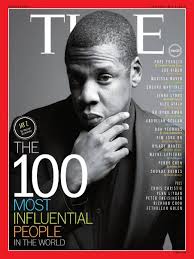 because he is inconsistent with velocities and meter.
because he is inconsistent with velocities and meter. - You learn that singing live is way easier than working a microphone in the studio and you struggle to step up and render the vocal that you believe you can do…but you do it.
- You learn that your guitar tone leaves a lot to be desired when a mic is put on it and half your pedals make an UNGODLY amount of preventable noise.
- You learn from your producer who cares that half the songs you wanted on the record are nowhere near as cool as the other half and you have to keep writing
- You learn through new relationships with pro writers that you are on the right track but you still have a long way to go; you still have a weak suit that needs attention
- You begin to see the difference between recording music and making records
- You learn from a misbehaving band member that negative, unstable energy in the recording studio is really bad; he or she goes the way of Pete Willis from Def Leppard.
- You learn that your bass player plays ahead or “on top†of the kick drum and your engineer will be moving it back. Your bass player is pissed and secretly embarrassed but you are secretly grateful the engineer will fix it because it sounds better
- You learn “behind the scenes†stories that break your heart about your favorite bands and how they didn’t play on their own records because recordings are forever and playing live is here and gone.
- You learn from past mistakes
- You make a bunch of new mistakes
Congrats, you’re beginning to become an artist. The next step is up to you. If you just want to make art for the sake of making art, then so it shall be; a glorious, expensive hobby. If you want to be a professional artist, than you will have to make some money at this which means a whole new journey learning how to move product.
If you like this post, please SHARE it and/or LEAVE A COMMENT thank you!
[ois skin=”Bottom Post”]

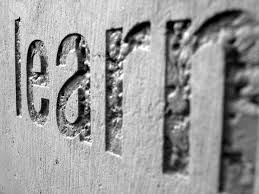


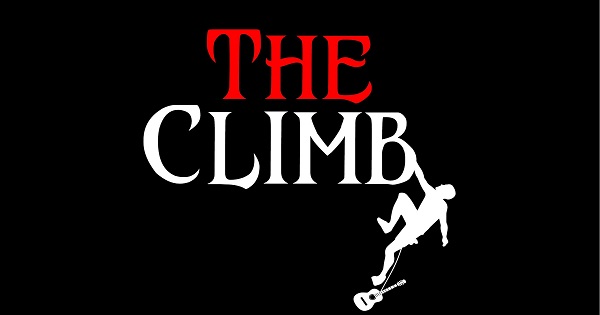
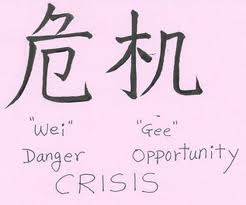

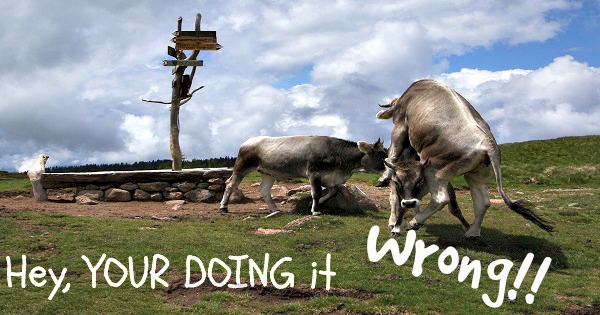




Tell Us Your Comments
Leave a Reply
Want to join the discussion?Feel free to contribute!